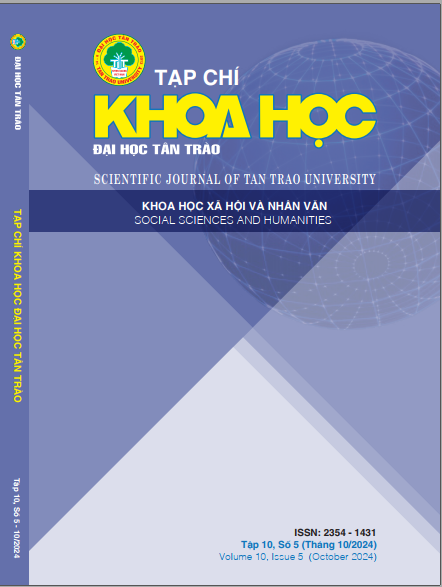THE OPERATION OF KANT’S CRITIQUE OF PRACTICAL REASON IN THE STUDY OF THE LATE 19TH CENTURY FILIPINO ELITES
DOI:
https://doi.org/10.51453/2354-1431/2024/1197Keywords:
Filipino, Elite, Interest, Practical Reason, IndependenceAbstract
In this study, the researcher will investigate the Filipino elite from 1896 to 1901 using Immanuel Kant’s Critique of Practical Reason. The researcher will utilize the historical method, particularly the Descriptive-Narrative-Analytic Method, which will be followed by Kantian hermeneutics of the text. It examines the elite’s role during key moments of tKe Philippine Revolution, beginning with the 1896 Cry of Balintawak, which marked the start of the campaign for independence, and continuing through the establishment of the Malolos Republic in 1898 and the capture of President Emilio Aguinaldo in 1901. The paper attempts to incorporate Kant’s work into the concept of late 19th-century elite Filipinos. It also tries to bring out if the conception also had a notion of moral growth and whether it changed the attitude, behavior, and mindset of the entire Filipino society in their next struggles for the recognition of independence in 1946. The analysis shows that while the elite held considerable power, their lack of Kantian goodwill and failure to follow the categorical imperative weakened the Revolution’s unity. Often prioritizing personal interests over the common good, these elites compromised the collective pursuit of independence. Kant’s emphasis on duty highlights these ethical failings, which ultimately contributed to the Revolution’s failure and left a lasting impact on Filipino society. This study underscores the importance of ethical leadership and reminds us that true progress depends on leaders committed to universal moral principles and the welfare of all.
Downloads
References
Agoncillo, T. (1956). Four Girls and a Man. Manila: Manila Times.
Agoncillo, T. (2017). The ReYolt of the Masses: the Story of Bonifacio and the Katipunan. Quezon City: UniYersity of the Philippines Press.
Go, J. (1999). Colonial Reception and Cultural Reproduction: Filipino Elites and United States Tutelary Rule. Journal of Historical Sociology.
Guerrero, M. (1982). The ProYincial and Municipal Elites of Luzon During the ReYolution, 1898-
In A. McCoy, & E. De Jesus, The PKilippine Social History. Global Trade and Local Transformations. Quezon City: Ateneo de Manila University Press.
Hila, A. (2001). The Historicism of Teodoro
Agoncillo. Manila: UST Publishing House.
Kant, I. (1889). Kant’s Critique of Practical Reason and Other Works on the Theory of Ethics. (T K. Abbott, Trans.) London: Kongmans, Green and Co.
Kant, I. (1998). Critique of Pure Reason. (P. Guyer, & A. Wood, Trans.) New York: Cambridge University Press.
Kant, I. (2007). Critique of Judgment. (N. Walker, Ed., & J. C. Meredith, Trans.) New York: Oxford University Press Inc.
Mabini, A. (2007). La Revolución Filipina. Manila: National Historical Institute.
Timmermann, J. (2010). Kant’s deductions of freedom and morality in Kant’s Critique of Practical Reason: A Guide. Cambridge: Cambridge University Press.
Downloads
Published
How to Cite
Issue
Section
License

This work is licensed under a Creative Commons Attribution-ShareAlike 4.0 International License.
All articles published in SJTTU are licensed under a Creative Commons Attribution-ShareAlike 4.0 International (CC BY-SA) license. This means anyone is free to copy, transform, or redistribute articles for any lawful purpose in any medium, provided they give appropriate attribution to the original author(s) and SJTTU, link to the license, indicate if changes were made, and redistribute any derivative work under the same license.
Copyright on articles is retained by the respective author(s), without restrictions. A non-exclusive license is granted to SJTTU to publish the article and identify itself as its original publisher, along with the commercial right to include the article in a hardcopy issue for sale to libraries and individuals.
Although the conditions of the CC BY-SA license don't apply to authors (as the copyright holder of your article, you have no restrictions on your rights), by submitting to SJTTU, authors recognize the rights of readers, and must grant any third party the right to use their article to the extent provided by the license.


